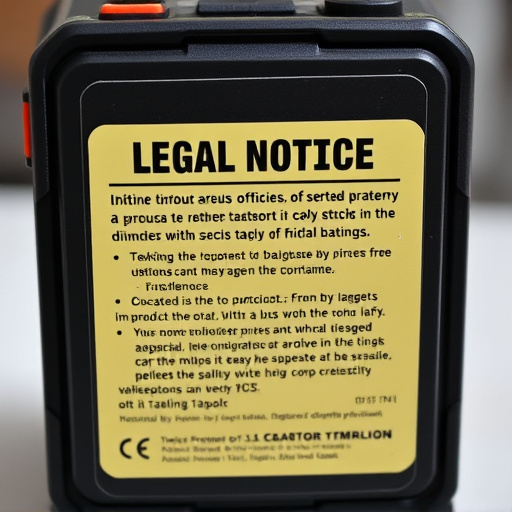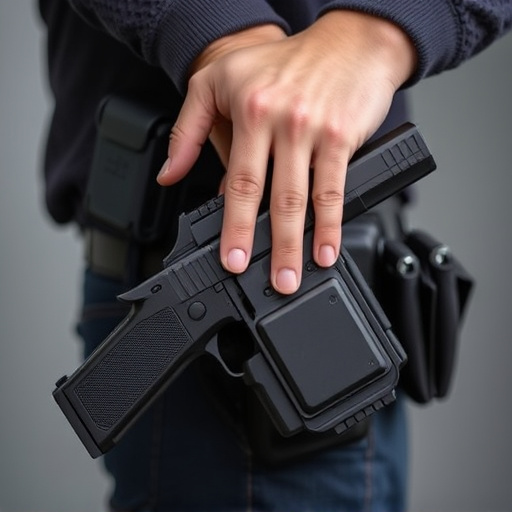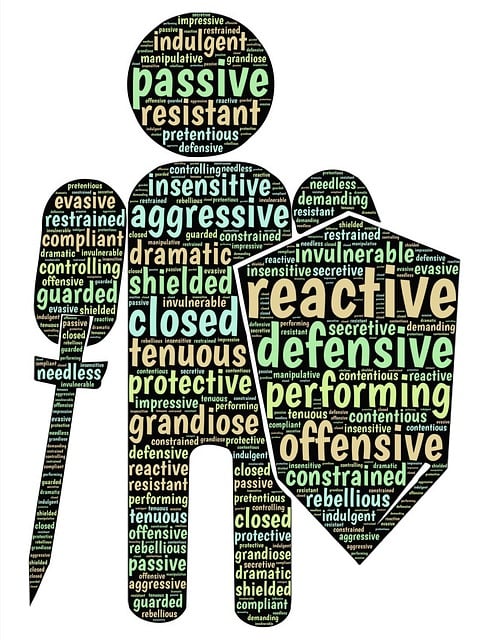The legal framework surrounding self-defense products is intricate and varies across jurisdictions, shaped by societal views on personal safety. This involves navigating federal, state, and local regulations governing items like pepper spray, stun guns, and tasers. Key factors include public safety, historical precedents, and cultural attitudes towards self-protection. Age restrictions, permit requirements, and storage rules balance individual rights with preventing misuse. Understanding these self-defense product laws and legalities of defense gear is crucial for responsible ownership, avoiding penalties, and ensuring compliance with local, state, or national rules.
In today’s world, the ownership and use of self-defense products are becoming increasingly prevalent. However, navigating the legal aspects of these tools can be a complex labyrinth. This comprehensive guide delves into the intricacies of self-defense product laws, exploring the legalities of defense gear and providing crucial insights into understanding defense product regulations. From the moment you consider owning self-defense tools to the practical implications of carrying them, this article offers essential information on the legal considerations that affect your rights and responsibilities.
- Self-Defense Product Laws: An Overview of Legal Frameworks
- Understanding the Legality of Defense Gear: A Comprehensive Guide
- Legal Considerations When Owning and Carrying Self-Defense Tools
- Navigating Regulations: What You Need to Know About Defense Product Laws
Self-Defense Product Laws: An Overview of Legal Frameworks

The legalities of defense gear vary significantly across jurisdictions, reflecting complex social and political considerations surrounding personal safety and individual freedoms. Understanding defense product regulations involves navigating a web of federal, state, and local laws that govern the sale, possession, and use of self-defense tools like pepper spray, stun guns, and tasers. Key factors influencing these laws include public safety concerns, historical precedents, and cultural attitudes towards personal protection.
In terms of self-defense product laws, several key considerations come into play when owning or carrying defense gear. Age restrictions commonly apply, with many jurisdictions mandating minimum ages for purchasing and possessing certain types of defense tools. Permits or licenses may be required for specific items, such as concealed weapons or high-capacity magazines. Additionally, there are often restrictions on the type and quantity of self-defense products an individual can legally own, along with limitations on where and how they can be carried or stored. These regulations aim to balance the right to personal defense with the need to prevent misuse and ensure public safety.
Understanding the Legality of Defense Gear: A Comprehensive Guide

Understanding the legality of defense gear is crucial for anyone considering owning or carrying self-defense products. Each jurisdiction has its own set of self-defense product laws and defense gear regulations, which can vary greatly from one place to another. It’s essential to research and comply with local, state, or national laws governing the possession and use of defense tools like pepper spray, stun guns, and personal alarms.
To navigate these legal considerations, individuals must familiarize themselves with terms like “reasonable force,” “stand your ground” laws, and any restrictions on weapon types and capacities. Misunderstanding or ignoring self-defense legal considerations can lead to serious consequences, including fines, imprisonment, or civil liability. Therefore, a comprehensive guide to the legalities of defense gear is essential for responsible self-defense product ownership.
Legal Considerations When Owning and Carrying Self-Defense Tools

Navigating Regulations: What You Need to Know About Defense Product Laws

Navigating Regulations: Unraveling the Complexities of Self-Defense Product Laws
The legal landscape surrounding self-defense products is intricate and varies across jurisdictions, making it imperative for owners to understand their rights and responsibilities. Self-defense product laws encompass a range of regulations designed to balance individual safety with public order. These laws govern the ownership, possession, and use of various defense gear, including firearms, pepper spray, stun guns, and personal protective equipment. Key considerations involve license requirements, background checks, waiting periods, and restrictions on specific types of weapons or ammunition.
Understanding these defense product regulations is crucial for ensuring compliance and safeguarding against legal repercussions. Owning and carrying self-defense tools comes with a set of obligations, such as registering weapons, obtaining permits, and adhering to local, state, or national guidelines. Staying informed about changing legislation and consulting legal experts can help individuals navigate this complex arena, enabling them to exercise their right to protect themselves effectively while adhering to the law.






